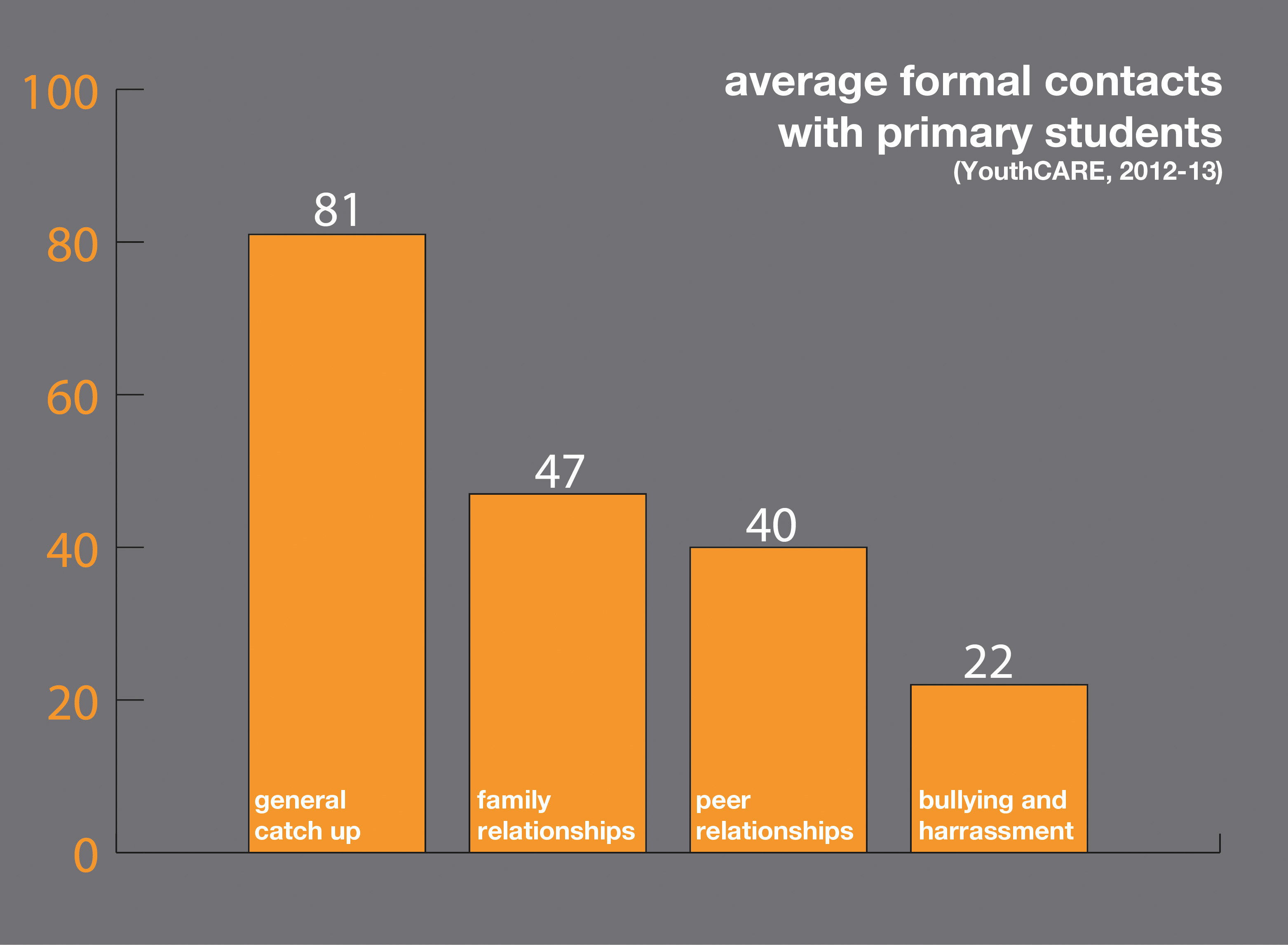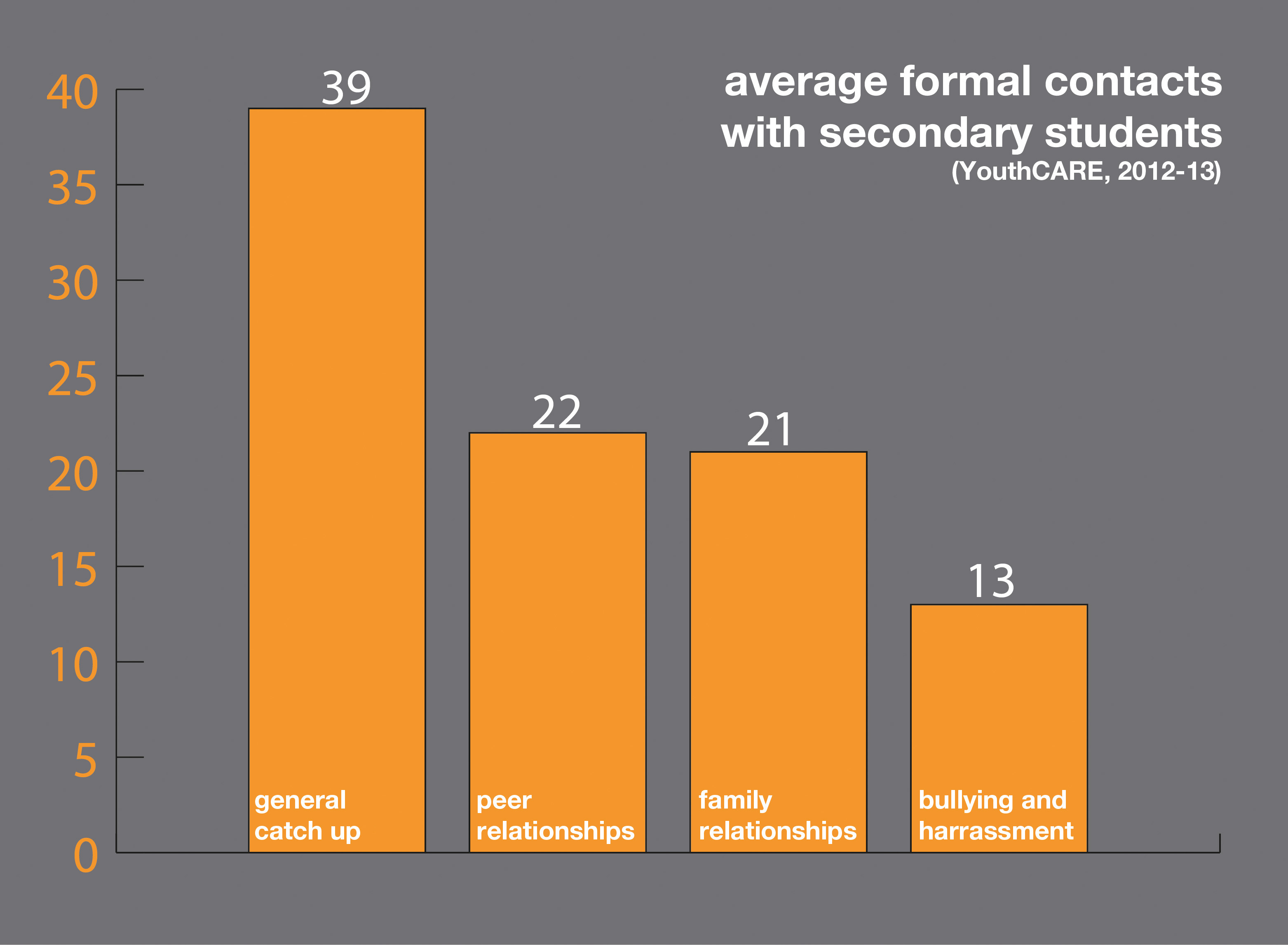15 February 2014
The top 4 things young people and chaplains talk about
Posted in Youth issues
If you have never personally experienced time with a school chaplain you may wonder what exactly is it they talk about with children and young people when they meet with them one-on-one.
It’s interesting what effects young people in their day to day lives, and many things can go unheard when there isn’t a chappy around to take the time to listen. There was a chaplain at my high school, but I never went to see them (not for a lack of life struggles). Lunch breaks were social battlefields and regrettably I felt I would be labeled as ‘different’ if I hung out with the chaplain. Funnily, one of these ‘different’ kids is now my best friend, as it turns out ‘different’ is unanimous with genuine and good-natured.
When I had a problem I would talk sometimes to friends, rarely to family, but mostly I had to work it out on my own. Since working with a number of chaplains as a volunteer, I realise I missed a great opportunity. Whether it is celebrating an A in English or mourning the passing of a loved-one, children and young people will run to the chaplain’s room to celebrate little achievements and loiter at the door to grieve losses. What’s great about time with a chappy is the child gets to set the agenda of conversation, choosing what they are comfortable with and feel like sharing.
A 2012/2013 study has revealed further insight into the conversations chaplains have with primary and secondary school children and found the four key topics are:
- General catch up: a time spent sharing what is going on in their world.
- Family relationships: many people think children become more independent from their families as they move through the years, but research shows children need their families and the support it offers as much as in younger years.
- Peer relationships: parents can help their primary school-age children make friends by networking with other parents to arrange social opportunities, but this evolves into an independent process for teenagers, something some young people struggle with.
- Bullying and harassment, bullying can happen anywhere – at school, at home, at work, or online and can have serious emotional and social consequences for both students who are bullied and those who bully others. It is great that young people are speaking about this issue.
Interestingly, peer relationships overtake family relationships in conversations with secondary school students.
Each day here at SU QLD we hear stories of children who love their chaplain because they are that someone who will listen and talk with them. Chaplains promote in students a sense that they are listened to, accepted, loved and valued; to encourage forgiveness and reconciliation in situations of conflict; and to ensure students needing counseling or other professional help are referred appropriately.
Everyday for a chaplain is different! Their role is so varied, they never know what they are going to encounter and how they will help. What we hear echoed by so many chaplains is that they love to just be there when they are needed. They understand that sometimes just making yourself available to be a listening ear can be all that a young person needs.
Each of these four key topics will be explored further in future posts so make sure you check back in.
But for now, I have booked my first appointment with Chappy Dave, our office chaplain and I’m really looking forward to it.





